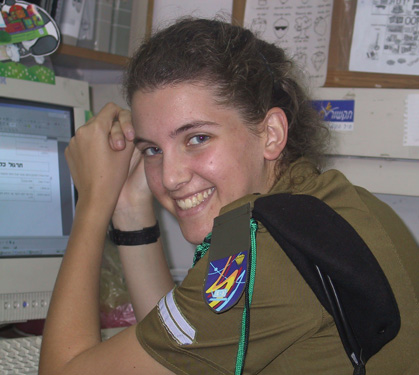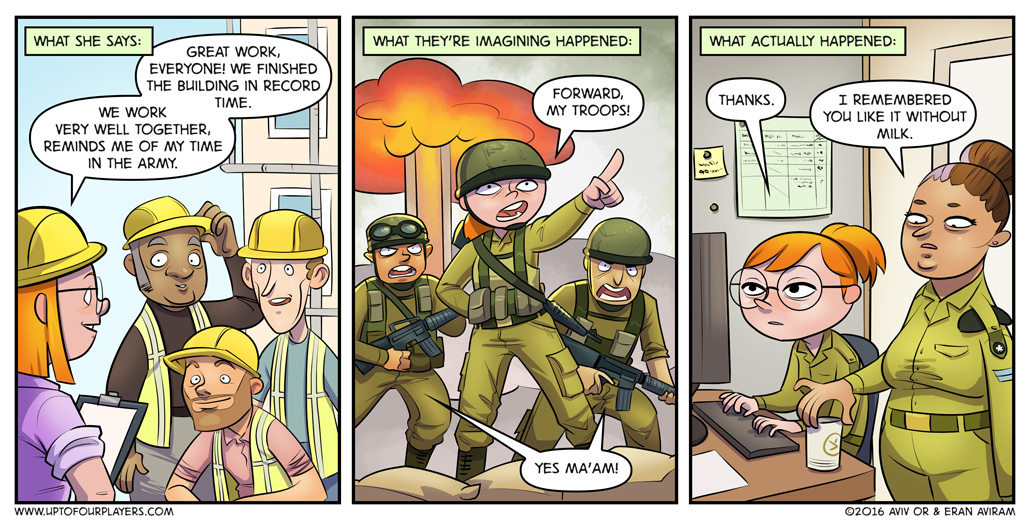Israel has mandatory army service. Most people get drafted at the age of 18, and serve between 2 years (minimum for women) and decades (as a military career), so the army is very much a part of Israeli culture, language and the common experience. In almost every conversation involving more than two Israelis, the IDF (Israeli Defense Force) inevitably and casually comes up at some point, often in a sentence like “Moshe? Moshe Bubbleblum? Yeah, I know him from the army!”.
When talking to people outside of Israel, though, the situation is a bit different. Whenever my time in the IDF comes up in a conversation with someone here (London, that is), I feel like they’re imagining something similar to the second panel above, inspired by the Badass Israeli Soldier Girl trope that pop culture likes to employ.
While many soldiers – women, too – serve in combat roles that are probably not so different to that second panel (but with better cover I hope), there are countless non-combative roles in any army, in various degrees of badassness. My badass sister trained soldiers in driving and maintaining APCs. My other badass sister was a physical fitness trainer for soldiers in combat roles. Way further down the spectrum, I taught soldiers computer-programming in a nice air-conditioned room, so they could design software to teach other soldiers how to do badass things. All these roles are important, but some of them look and feel a lot more like a desk job than an action movie.

No classified data in this picture, promise
So when I mention my IDF service and notice that look, like on Lily’s employees’ faces, I feel like I’m getting some unspoken undeserved credit. But hey, this one time, in boot camp, I totally fired an M-16.
Eran: And I’m a certified tank commander. Life is weird.
P.S.
Yes, apparently Lily works in construction.
In today’s new podcast episode, we welcome our new followers, and explain some of the decisions behind the working of the strips.




